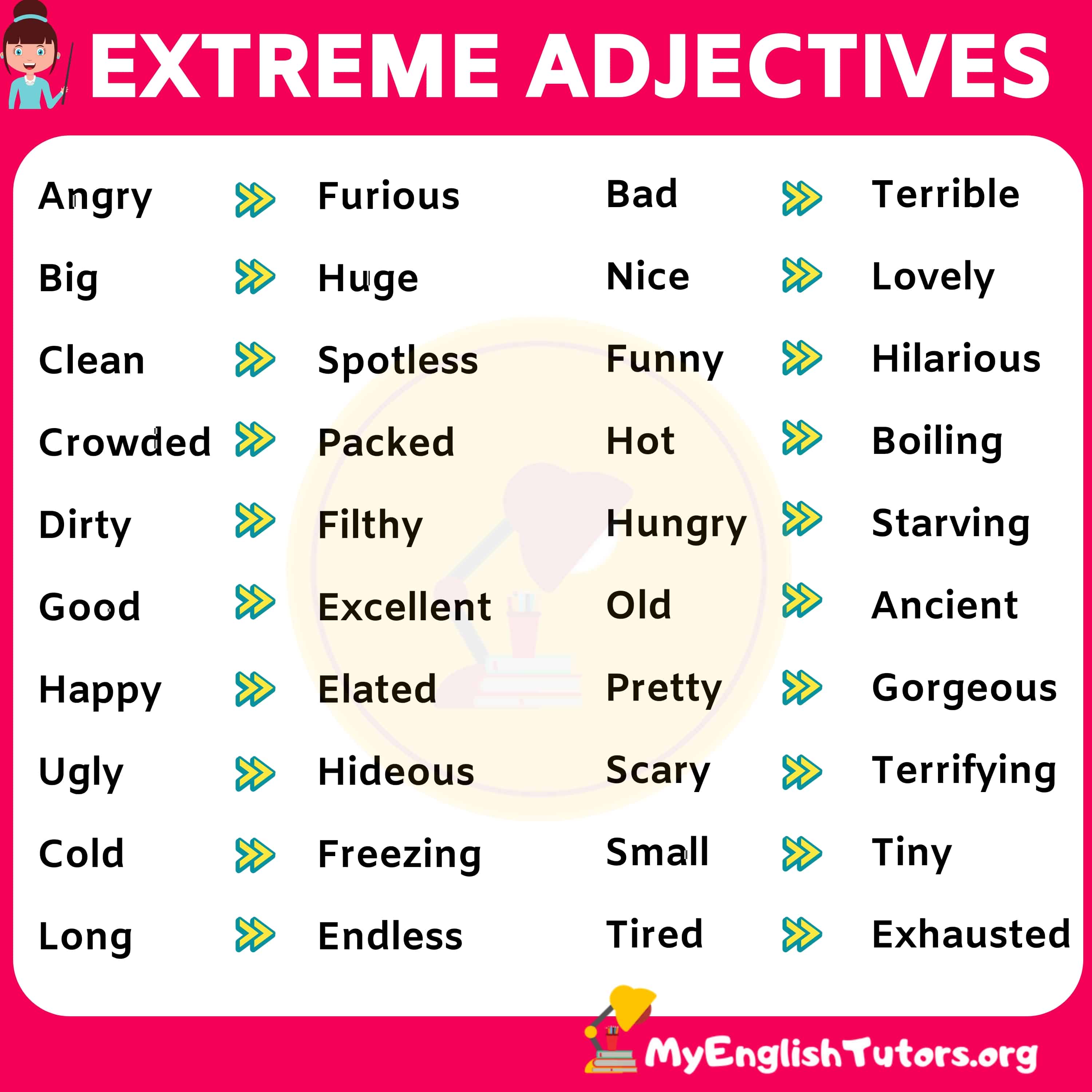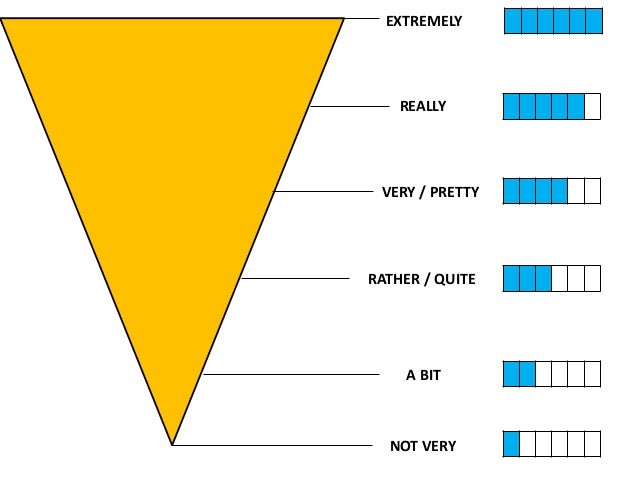Related words
A set smile or expression does not change, and often hides what someone is really thinking. Shamefaced adjective. With an expression that shows you feel ashamed about something. Slack-jawed adjective. Informal with your mouth open. Used about the expression on people’s faces. Showing that you think something. Really You use really in conversation and in less formal writing to emphasize something that you are saying. Really usually goes in front of a verb, or in front of an adjective or adverb. I really enjoyed that.
absent
adjectiveshowing that you are not payingattention to what is happening because you are thinking about something else
appealing
adjectivean appealinglook, voice etc shows that you wanthelp, approval, or agreement
beatific
adjectiveliterary a beatificexpression on your face is extremelyhappy and peaceful
bleak
adjectiveused about someone’s expression
brooding
adjectivelooking as if you are thinking and worrying about something
bug-eyed
adjectiveinformal very excited or interested, so that your eyes are wideopen
dark
adjectivea darklook or remark is angry and threatening
deadpan
adjectivepretending to be serious when you are reallyjoking
downcast
adjectivedowncasteyes are lookingdownwards, especially because you are sad, embarrassed, or shy
dreamy
adjectivea dreamylook, expression etc shows that you are thinking about something pleasant rather than payingattention
etched
adjectivemainly literary if a feeling is etched on someone’s face, their expressionshowsclearly what they are feeling
expressionless
adjectivenot allowing your feelings to show in your face, eyes, or voice
faint
adjectiveused about the expression on someone’s face
fixed
adjectivea fixedexpression on someone’s facedoes not change or looknatural
glazed
adjectivea glazedlook or expressionshows no interest or emotion
grave
adjectivelooking very serious and worried
haunted
adjectivesomeone who has a hauntedlooklooksfrightened or worried
hunted
adjectivesomeone who has a huntedlook seems very worried or frightened
meaningful
adjectiveexpressing a clearfeeling or thought without words
mild
adjectivea mildfeeling or expression is one that is not very strong or severe
mischievous
adjectivea mischievouslook or expressionshows that you enjoyhavingfun by causingtrouble
mobile
adjectivemoving a lot and showingchanges in what you are feeling
Mona Lisa
 adjective
adjectiveused for describing a mysterioussmile or expression on a woman’s face
on someone’s face
phrase
used for saying that someone’s face has a particularexpression
pained
adjectiveshowing that you feel very upset or unhappy
pitying
adjectivea pityingexpressionshows that you feelpity for someone, but sometimes also that shows you do not think they deserverespect
pleading
adjectivea pleadinglookshows that you want something very much
pleadingly
adverbif you say something pleadingly, or if you look at someone pleadingly, your voice or expressionshows that you want something very much

quizzical
adjectiveshowing that you are confused or surprised by something, and perhaps that you think it is rather strange and funny
radiant
adjectivesomeone who is radiantlooksextremelyhappy
roguish
adjectivea roguishexpressionsuggests that someone is likely to do something that is wrong but not harmful
sardonic
adjectivea sardonicsmile, expression, or commentshows a lack of respect for what someone else has said or done
set
adjectivea setsmile or expressiondoes not change, and often hides what someone is reallythinking
shamefaced
 adjective
adjectivewith an expression that shows you feelashamed about something
sly
adjectivea slysmile, look, or remarkshows that the persondoing it knows something that other people do not know
smiley
adjectiveinformalsmiling, or tending to smile often
straight face
phraseif someone has a straightface, they look serious even though they are saying something funny or are in a funnysituation
straight-faced
adjectivenot showing that you want to laugh
sullen
adjectiveshowing that you are in an unhappymood, and do not want to talk
sullen
adjectiveused about someone’s expression or attitude
taut
adjectiveused about something such as a voice or expression that shows someone is nervous or angry
thoughtful
adjectiveused about someone’s face or expression
tight-lipped
adjectivesomeone who is tight-lipped has their lipspressedtightly together because they are annoyed about something or they do not approve of it
unblinking
adjectivemainly literarylookingstraight at someone or something without closing your eyes at all
unreadable
Really Adjective Or Adverb
adjectivemainly literary if someone’s face, eyes, or expression are unreadable, you cannot guess what they are thinking
vacant
adjectivelooking as if you do not understand or are not payingattention
wan
adjectiveused about someone who looks very sad
wanly
List Of 50 Adjectives
adverbwith a tiredsadexpression on your face
wide-eyed
adjectivewith an expression that shows that you are very surprised, frightened, or impressed
wild-eyed
adjectivesomeone who is wild-eyedlooks very angry or frightened
withering
adjectivea witheringlook, expression, or remarkdeliberatelymakes you feelsilly or embarrassed
wolfish
adjectivelooking as though you want to hurt or trick someone
worried
adjectiveused about the expression on people’s faces
wry
adjectiveshowing that you think something is funny but not very pleasant, often by the expression on your face
Really is an adverb because it qualifies verbs, adjectives and other adverbs.
Infact, one of the key identification of adverbs is that a lot of them end in -ly.
Let us look at some of the usage examples of the adverb ‘really’.
i) Qualifying a verb:
a) He really stays up all night. (qualifies verb ‘stays’)
b) Did Sudhir really say that? (qualifies verb ‘say’)
c) I can never really forget that day. (Qualifies verb forget).
d) You don’t really learn from your mistakes. (qualifies the verb learn).
Now, let us look at examples where the adverb ‘really’ is qualifying adjectives:

Ex1: He is really fat (qualifies adjective ‘fat’).
Ex2: It was really scary in the jungle (qualifies adjective ‘scary’)
Ex3: This place is really beautiful (qualifies adjective beautiful).
Ex4: Bullet train journey is really amazing (adjective amazing)
And then, the third set of usage where ‘really’ is sued to modify other adverbs:
i) Sudhir runs really fast.
ii) Mahesh works really hard.
iii) I didn’t really work hard enough.
iv) Why don’t they never really tire of complaining?
